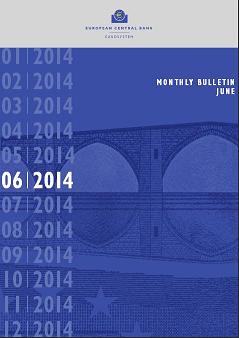Darvas, Z. & Hüttl, P. (2014) “The long haul: debt sustainability analysis“, Working Paper – European Macroeconomics, Bruegel Association, 18 Ιουνίου. This working paper details and updates the debt sustainability analysis of Darvas, Sapir and Wolff (2014) for Greece, Ireland and Portugal. The goal is not the calculation of a baseline scenario which best corresponds to our views, but to set-up a baseline scenario which broadly corresponds to official …Read More
Labour Mobility in the EU: Dynamics, Patterns and Policies
Barslund et al. (2014) “Labour Mobility in the EU: Dynamics, Patterns and Policies“, INTERECONOMICS, Vol 49, No. 3· May/ June 2014. The continued economic crisis has become a major test for the labour markets of individual member states. Labour mobility within the European Union has the potential to help to reduce labour market pressures and ease economic imbalances. However, a long-term loss of working age population can be detrimental …Read More
Should the Euro Area Be Concerned About Deflation?
Illing, G. (2014) “Should the Euro Area Be Concerned About Deflation?“, INTERECONOMICS, Vol 49, No. 3· Μάιος/ Ιούνιος 2014. During the past few years, headline inflation (the change in the harmonised consumer price index, HCPI) in the euro area has fallen steadily, from three per cent at the end of 2011 to 0.7 per cent in April 2014. It is now far below the ECB’s target rate of inflation …Read More
The Euro Area Crisis: Politics Over Economics
Orphanides, A. (2014) “The Euro Area Crisis: Politics Over Economics“, MIT Sloan Research Paper No. 5091-14, 10 Iουνίου. This paper explores the dominant role of politics in decisions made by euro area governments during the crisis. Decisions that appear to have been driven by local political considerations to the detriment of the euro area as a whole are discussed. The domination of politics over economics has led to crisis …Read More
The ill-advised rigidity of the 2% inflation target
Stegeman, H. (2014) “The ill-advised rigidity of the 2% inflation target“, Pieria Network, 16 Ιουνίου. Our macroeconomic policy is largely based on the theory mainly developed in the post-war years, and more particularly at the time of the Great Moderation. This was the period of steady, reasonably predictable economic growth from the beginning of the 1980s until the crisis of 2007/2008 and the subsequent Great Recession. As a result …Read More
Monthly Bulletin
European Central Bank (2014) “Monthly Bulletin“, ECB Eurosystem, Ιούνιος. ECONOMIC AND MONETARY DEVELOPMENTS 1 THE EXTERNAL ENVIRONMENT OF THE EURO AREA The global economy remains on a gradual recovery path, although the growth momentum moderated somewhat in the first quarter of 2014 as a result of temporary factors mainly affecting the United States and China. As the adverse effects of these factors are gradually waning, global activity should gather …Read More
Why does inequality grow? Can we do something about it?
Teulings, C. (2014) “Why does inequality grow? Can we do something about it?“, VoxEU Organisation, 15 Ιουνίου. The income inequality has increased worldwide in recent years. This column discusses the role of technological progress, globalisation, and the liberalisation of labour-market institutions on the growing inequality. The liberalisation of labour market institutions has made labour markets more flexible and created many jobs. But beyond a certain point, the net effect …Read More
Inflation Targets Reconsidered
Krugman, P. (2014) “Inflation Targets Reconsidered“, Draft paper for ECB Sintra conference, Μάιος 2014. Over the course of the1990s many of the world’s central banks converged on an inflation target of 2 percent. Why 2 percent, rather than 1 or 3? The target wasn’t arrived at via a particularly scientific process, but for a time 2 percent seemed to make both economic and political sense. On one side, it …Read More
The social impact of fiscal policy responses to crises
Vegh, C. A. & Vultein, G. (2014) “The social impact of fiscal policy responses to crises“, VoxEU Organisation, 12 Ιουνίου. The question of whether fiscal policy should be pro- or countercyclical has become increasingly relevant during the recession. This column provides causal evidence from South American countries showing the success of countercyclical policy in improving social indicators of economic success, combined with correlative evidence from Europe. This represents a …Read More
The European Parliament elections show the increasingly fragmented nature of European party systems
Mudde, C. (2014) “The European Parliament elections show the increasingly fragmented nature of European party systems“, LSE EUROPP, 12 Ιουνίου. Most coverage of the European Parliament elections has noted the rise of several far-right and Eurosceptic parties across Europe. Cas Mudde argues, however, that a more important trend was toward increasingly fragmented party systems. Presenting a series of numbers from the elections, he illustrates that ‘big parties’ are experiencing …Read More





